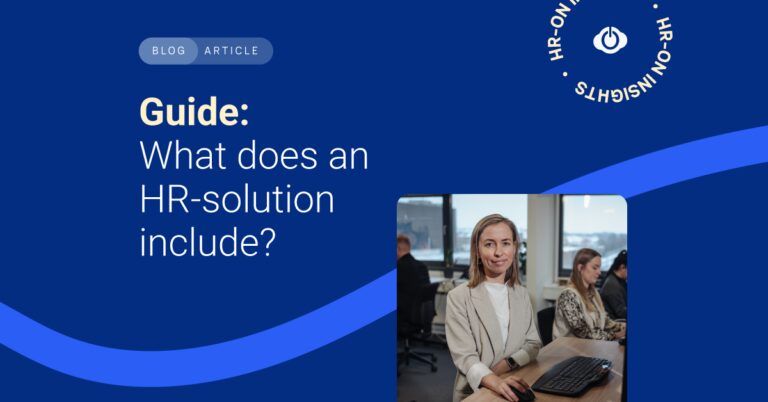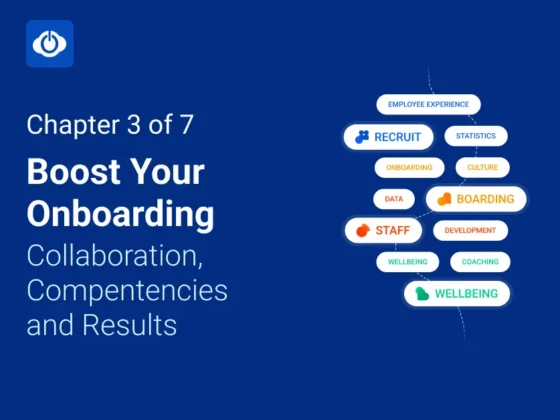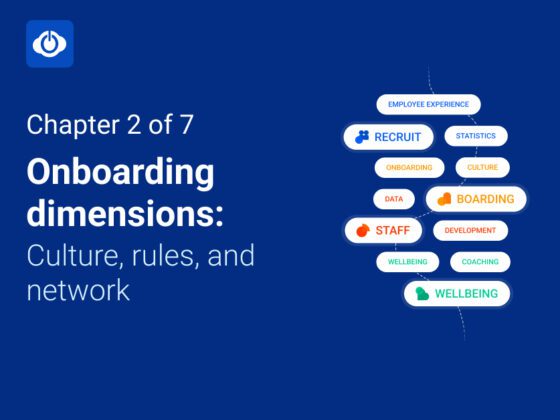HR Management System Used by 500+ Companies – HRMS for All Types of Organizations
What does “HR management system” mean, and why should you know? Is it a solution that covers everything HR-related, or is there a limit to its scope? Don’t worry! Here’s a quick explanation of what an HR system like HR-ON Staff can do and what it includes.
The term’ HR management system’ has become a cornerstone for businesses looking to streamline HR processes and improve employee management. But what does it mean?
An HR management system is a platform that combines multiple HR functions into one system, helping organizations manage everything from recruitment and onboarding to employee development and performance management. These systems come in various forms and sizes, so choosing one that matches your company’s needs is essential.
A system like HR-ON Staff brings all HR processes together on a single platform. Designed to enhance efficiency, it automates repetitive tasks, freeing up time for essential activities like employee engagement and satisfaction, making it an HRMS perfect for all organization types.
What Does an HR Management System Include?
Most HR management systems include features that automate time-consuming tasks, saving the HR department time and resources. The features may vary depending on your chosen system, but a good HR system should include at least five essential functionalities.
Here are the key features of HR-ON Staff:
1. Employee Data Management: Centralized storage and management of employee information.
✅ HR-ON Staff stores employee data in one secure, GDPR-compliant system. The system is easy to search and update and supports multiple languages, including English, German, and Danish.
2. Time Tracking and Absence Management: Logging work hours, vacation, and sick leave.
✅ The system allows tracking of working hours, vacation and absences via the web, while the StaffBuddy app provides an easy mobile solution for employees to manage these tasks on the go.
3. Integrations to other systems: Seamless integration with payroll systems for managing salary-related data.
✅ HR-ON Staff offers an open API, making it easy to integrate with existing systems. You can also view current friends and partners here.
4. Recruitment and Onboarding: Tools for job postings, application tracking, and onboarding new employees.
✅ Combine HR-ON Recruit and Staff for a seamless process. Start recruitment in Recruit, and once the right candidate is hired, their data transfers easily to Staff for onboarding.
5. Analytics and Development: Insightful data on employee engagement, performance reviews, and more.
✅ Improve employee engagement using tools like the Engagement Builder or pulse surveys to check workplace satisfaction. These insights help strengthen and develop your team.
Remember, these are just a few of the features. HR-ON Staff offers much more! Hear from our customers about how HR-ON Staff supports Ditur’s expansion or helps Odense S&E improve its HR processes.
How Can an HR Management System Adapt to Different Types of Organizations?
International Companies
Your company’s HR management system must meet your needs, such as multilingual support. HR-ON Staff supports multiple languages, including English, German, and French, making it easy for international companies to start. Online masterclasses are also available for quick onboarding.
Small and Medium-Sized Businesses
Small and medium-sized businesses often have limited resources, making a cost-effective HR management system essential. HR-ON automates administrative tasks like recruitment and absence tracking, freeing up time. The system also provides insights into employee satisfaction and performance, enabling data-driven decisions and targeted initiatives.
NGOs
NGOs often manage a mix of volunteers and permanent staff. HR-ON simplifies this complexity with organizational charts and features like the Engagement Builder, which can be used to assess employee and volunteer satisfaction.
You might also like: Blind Recruitment: How to Get Started
What Does an HR Management System Cost?
The cost of an HR management system depends on your needs and the features included. It’s more than just a platform for managing employee data – it’s a strategic tool that can optimize HR processes and enhance the employee experience.
The price will vary depending on scalability, user-friendliness, and whether the system can grow with your company. For example, a small NGO shouldn’t pay the same as a large multinational corporation, right? Take the time to evaluate what your company needs and ensure the system fits your budget and growth plans.
Are you considering HR-ON Staff? Use our price calculator to get an estimate for your company. It’s a great starting point, and it can lead to a personalized demo and consultation with our sales team to answer any questions you may have.
You might also like: Boosting Employee Well-Being: Use Pulse Surveys in StaffBuddy
An HR Management System That Helps Your Business Grow
An HR management system is a powerful tool for optimizing HR processes, boosting employee satisfaction, and improving organizational performance. Choosing the right system for your business ensures your organization can grow and evolve.
Make sure your HR system offers at least these essentials:
- Data management and integrations
- Employee engagement and satisfaction tools
- Productivity and support features
HR-ON’s HR management system is tailored to suit all types of organizations, helping streamline HR tasks and maximize efficiency. Not sure yet? Learn more about us, the system, and other details in our FAQ, or book a demo today for a live walkthrough.
FAQ: What Is an HR Management System?
What is an HR management system?
An HR management system is a platform that helps businesses manage HR tasks like recruitment, payroll, and employee data. It streamlines HR processes and makes them more efficient.
What types of HR management systems are there?
There are HRIS for employee data management, HRMS with payroll features, and TMS for talent development. The choice depends on your company’s needs and size.
How do you choose the right HR management system?
Analyze your business needs, test different systems, and ensure the system can scale with your company. Ease of use and support are also key factors.
What are the benefits of an HR management system?
It saves time, improves compliance, and provides better insights into employee data. It simplifies HR tasks and enhances employee satisfaction.





